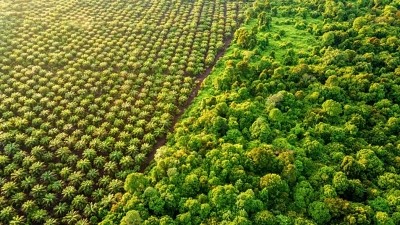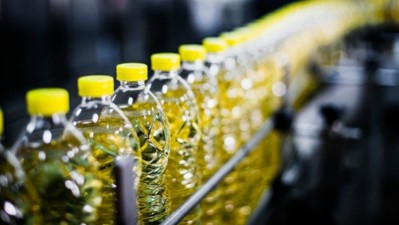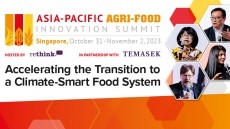‘No sustainability without traceability’: Palm oil giant stresses value of supply chain knowledge for future success

GAR achieved 96% overall supply chain traceability of its palm oil sources, which is of high significance to the food and beverage industry as it is the world’s second-largest integrated palm oil firm and supplies palm oil to many big food and beverage brands.
“Times have changed and today consumers are very careful about what goes into their foods, leading the manufacturers very keen to have information to provide to them on sustainability and traceability credentials,” GAR Chief Sustainability and Communications Officer Anita Neville told FoodNavigator-Asia.
“Especially when it comes to palm oil, we all know how important sustainability has become to the industry as a whole, and in fact there can be no sustainability without traceability – only by implementing traceability capability and being able to pass that information down will firms be confident in what they are buying, who they are buying it from and dare to confidently make sustainability claims of any sort.
“This is the reason GAR took it upon ourselves to make that investment, to establish a team to work on implementing traceability in our supply chains, so as to ensure we get that trust in place.”
As the firm deals with over 500,000 hectares of palm oil plantations as well as hundreds of thousands of third party suppliers including smallholder farmers, this was no small feat.
“Trust was also a challenge in the implementation particularly when it came to convincing the smallholder farmers, as they would wonder what our motivations were, what was in it for them, and whether this could be used against them as it was all very new to them, so the only way was for us to do it ourselves first and lead by example,” Neville said.
“Many consumers or those outside of the palm oil supply chain tend to have the perception that to achieve scale it is easy enough to just use technology as a solution – but it is so much more than that. We thought so too at first, but when we did our tests we realised that having the tech itself is not enough, many other factors need to be considered such as do the farmers know how to use it, how can they take the tools out into the field, what happens if it rains and whether the measuring equipment is waterproof, and things like that.
“There was also a strong need to train the farmers as not only was this all new to them, many had no experience with items that were so expensive in their eyes, and they were more worried about spoiling these and having to reimburse or were embarrassed to admit their lack of knowledge.
“These were all things we had to figure out with our own farmers in our own plantations so we could translate this all throughout the supply chain, and so we had to make the necessary investments whether it be in terms of equipment or manpower, but it was crucial as traceability is a strong commercial driver in a time where consumers are more discerning about the ingredients of finished products, leading to the food firms, our customers, becoming more discerning about the origin of their raw materials [and] being willing to pay more competitive prices or sign larger contracts.”
Brand partnerships
In addition, Neville also stressed that collaborations with brand partners when it comes to traceability is very important when it comes to the implementation of the technology.
“We are working with firms such as Mars and Fuji Oil to look at smallholder farmers in the Acheh region to map the plantations and implement best practices and accelerate their readiness for sustainability certification,” she said.
“We’ve already done some work with major brands like Nestle and Hershey on previous projects and are aware that working with these brands is very important to the process. They can be involved all the way from high up the supply chain to the end-user, and their investments go a long way to helping with introducing the technology which for us is a web-based platform and a mobile app that allows for information to be input on boundaries, operations, sustainability criteria, average yield and so on.”
For the brands, the benefits of traceability are also increasingly important in a time when palm oil sustainability has become such a big issue.
“Over the past three to four years, one major benefit we have heard brands tell us about is that this has definitely helped them not get caught by surprise allegations by environmental NGOs or other dissenters, and help them monitor things more closely so they can ensure that any real issues can be dealt with [and others can be refuted],” Neville added.
“For instance, before this an NGO could just accuse a company of being responsible for this deforestation or fire along the supply chain because the company had bought palm oil from a certain place in Indonesia – and the firm would not be able to confirm or deny as they did not have that intimate knowledge of the supply chain.
“Today, traceability technology has given them that knowledge and they will be able to confirm if they are aware of the issue, have reached out or are investigating, or if things are all in compliance and the accusation is erroneous.”





















